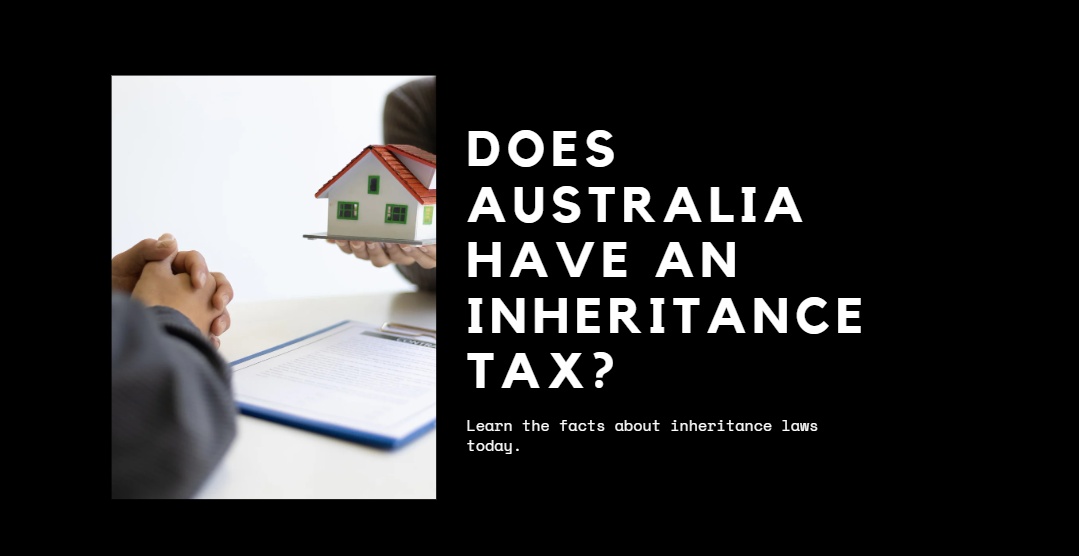Does Australia Have an Inheritance Tax?
01-Jan-2025

| Disclaimer: This article is intended solely for general informational purposes and should not be construed as financial or tax advice. We strongly recommend that you seek independent legal and financial counsel before making any investment decisions or financial commitments. The information provided herein may not be applicable to your specific circumstances, and we encourage you to consult with qualified professionals to address your individual needs. |
Australia does not impose an inheritance tax. Yes, you read that right! Unlike many countries where heirs face hefty taxes, Australia ensures a smooth transfer of wealth without an additional financial burden.
Comparison of Inheritance Tax Across Countries
To give you a clearer picture of how Australia compares to other countries regarding inheritance tax, here’s a breakdown of inheritance tax rates in several countries:
| Country | Inheritance Tax Rate | Notes |
| Australia | 0% | No federal inheritance tax; CGT applies on the sale of inherited assets. |
| United Kingdom | Up to 40% | Charged on estates over £325,000; various reliefs available. |
| Japan | Up to 55% | Progressive rates apply; significant exemptions for small estates. |
| Singapore | 0% | No inheritance tax since 2008; estate duty abolished. |
| Vietnam | Up to 20% | Inheritance tax applies; rates depend on relationship to deceased. |
| Thailand | Up to 10% | Inheritance tax introduced in 2016; applicable on estates over THB 100 million. |
| Indonesia | Up to 20% | Progressive rates apply; varies based on estate size and relationship. |
Why Does This Matter?
For Singaporean investors familiar with Additional Buyer’s Stamp Duty (ABSD) and other levies, Australia’s lack of inheritance tax is a game-changer. This tax-free advantage makes it a top choice for building long-term wealth.
However, this does not mean that your inheritance is entirely tax-free. Instead, you must be aware of potential capital gains tax (CGT) implications when selling inherited properties.
Capital Gains Tax (CGT): What You Need to Know
When you inherit property and later decide to sell it, CGT will apply to any profit made from that sale. The gain is calculated based on the market value at the time of death.
Market Value at Death: If you inherit a property worth AUD 500,000 at the time of death and sell it later for AUD 600,000, you will be liable for CGT on the AUD 100,000 profit.
This means that if the property appreciates in value over time and you sell it later, you’ll need to pay CGT on that increase.
Exemptions
- - The deceased died before September 20, 1985, and the property was their main residence.
- - The deceased acquired the property before September 20, 1985, and the property was their main residence.
- - The property was the main residence of at least one of the following people: spouse of the deceased, person with a right to occupy under the deceased's will, or the beneficiary.
- - The property was disposed of within 2 years of the deceased's death.
**Additional Rules**
- - If the property is not fully exempt, the beneficiary must work out its cost base and the proportion of the property that is exempt.
- - Foreign residents who inherit Australian residential property may not be entitled to the main residence exemption if they have been a foreign resident for more than 6 years.
- - If a foreign resident sells or disposes of the property, CGT will apply if they are not entitled to the main residence exemption.
- - When an owner of a shared property dies, their share of the property is transferred based on their co-ownership arrangement.
Changes Impacting Estates
The Victorian Government's recent changes to Probate Office fees, effective November 18, 2024, are accompanied by significant future legislative changes regarding estate and gift tax exemptions in the United States.
| Estate Value | Previous Fee | New Fee | Increase | Percentage Increase |
| $0 - $249,999.99 | $68.60 | $0 | -$68.60 | -100% |
| $250,000 - $499,999.99 | $68.60 | $514.40 | $445.80 | 650% |
| $500,000 - $999,999.99 | $367.40 | $1,028.80 | $661.40 | 180% |
| $1,000,000 - $1,999,999.99 | $685.90 | $2,400.50 | $1,714.60 | 250% |
| $2,000,000 - $2,999,999.99 | $1,502.40 | $4,801.00 | $3,298.60 | 219% |
| $3,000,000 - $4,999,999.99 | $2,318.90 | $7,185.20 | $4,866.30 | 210% |
| $5,000,000 - $6,999,999.99 | $2,318.90 | $12,002.60 | $9,683.70 | 418% |
| More than $7,000,000 | $2,318.90 | $16,803.60 | $14,484.70 | 624% |
Foreign Investment Review Board (FIRB) Approval
As a foreign investor looking to purchase property in Australia, obtaining FIRB approval is required.
What is FIRB Approval?
FIRB approval is required for most foreign investments in Australian real estate to ensure compliance with national interests.
Approval Process
Property Types Allowed
- New developments or off-the-plan properties are encouraged.
Penalties for Non-Compliance
- Heavy fines and even forced sale of the property.
FIRB Fees
The current FIRB fees for residential properties (as of December 2024):
- Properties below AUD 1 million: AUD 15,000.
To put these fees in perspective, consider a case study:
This example highlights the potential returns and positions FIRB fees as a manageable entry cost into a lucrative market.
Other Tax Implications
Annual Vacancy Fee
- Applicable if the property is vacant for more than 183 days a year.
The Australian property market is heating up. Property prices in Melbourne and Perth are expected to rise by 5-8% in the next year. Every month without a property is a missed opportunity for steady cash flow. Contact me today to explore the best properties Australia has to offer and secure a tax-free inheritance advantage for your heirs now!

